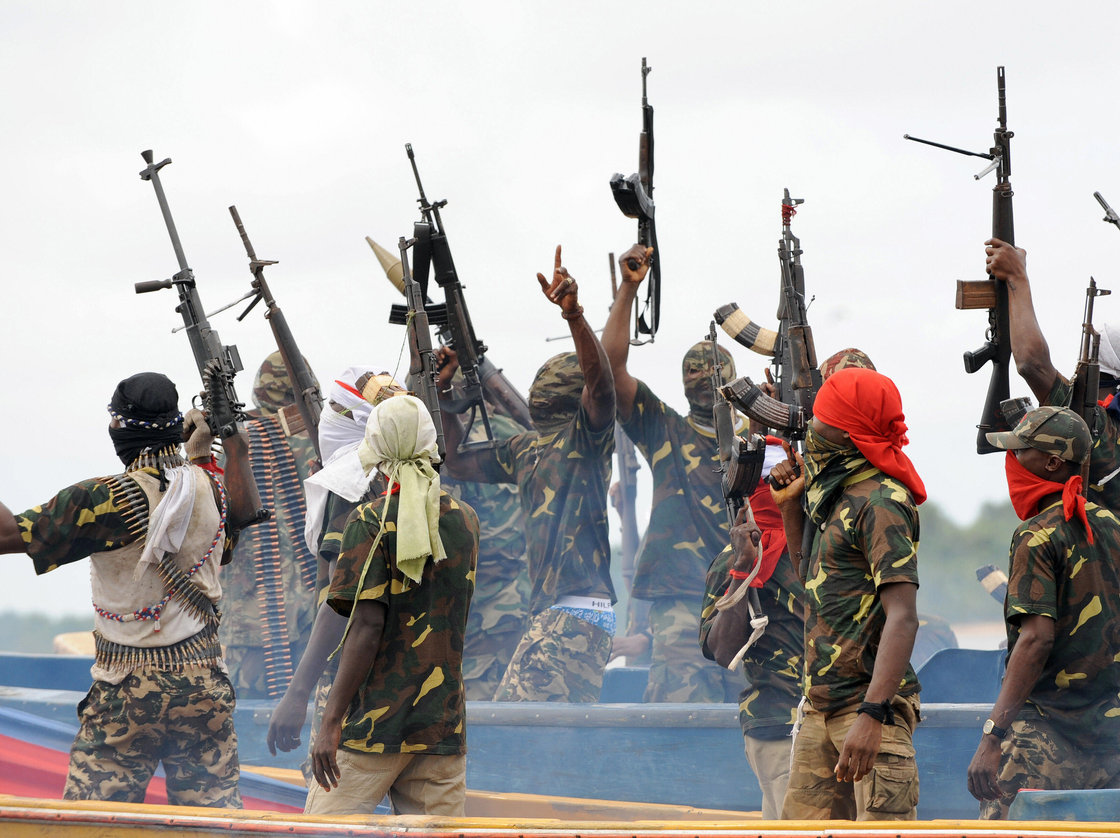The Niger Delta region was hit by violence on Friday, April 3, 2015 as gunmen reportedly killed nine people and militants, in a separate incident, blew up a gas pipeline, in a sign of returning unrest to the oil producing area days after a relatively peaceful presidential election.
In an election marred by allegations of bias against the Professor Attahiru Jega, the head of Nigeria’s electoral body, the Independent National Electoral Commission (INEC), opposition presidential candidate General Muhammadu Buhari beat incumbent President Goodluck Jonathan by a small margin last weekend.
Elements in President Jonathan’s home region, allege that the election was rigged by Jega’s led INEC by denying millions of voters in the South East and South South Region, the stronghold of the incumbent their permanent voters cards. While, there was a concerted effort to register underaged voters in the North, the stronghold of the opposition candidate, Buhari. As at election day, close to a million voter cards were yet to be printed, a huge proportion of these for voters in the South East and South South states.
In addition, millions of voters in the South East and South West were unable to vote because the accreditation machines failed in large parts of the South, while in the North, INEC officials discarded the card reader machines and accredited voters manually, INEC officials in the South were told to stick to the faulty card reader machines. Together, these two factors contributed to what analysts say depriving President Jonathan of 5 millions of potential votes.
In the town of Obrikom and the nearby village of Obor in Rivers State, gunmen went on a shooting spree, Nigerian Police report.
“Some unknown armed men invaded the Obrikom and Obor communities killing nine, injuring two persons,” Rivers State Police Spokesman Ahmed Mohammad told newsmen, Saturday, April 4, 2015.
The house of a Vincent Ogbagu an All Progressives Congress (APC) candidate for the House of Representatives, was set on fire.
Nigeria is Africa’s biggest crude oil producer and the continent’s economic giant. Rivers State is a flashpoint for electoral violence, especially as Governor Rotimi Amaechi defected from the ruling People’s Democratic Party (PDP) in acrimonious circumstances due to tension between he and the nation’s President.
Gunfire and explosions hit an opposition rally in February, wounding several people, and other non-fatal bomb blasts rocked the state ahead of the polls, Reuters reports. In Rivers, at least two people were killed during the Saturday polls.
In Delta State, another state which voted overwhelmingly for the incumbent, militants from the Urhobo ethnic minority group blew up a gas pipeline on Friday to draw attention to their exclusion from lucrative pipeline protection contracts with the state oil company, an official said.
“The Urhobo militants who carried out the attack have claimed responsibility,” said Isa Ado, spokesman for the Pulo Shield taskforce, made up of members of various Nigerian security forces.
Dokubo Asari, a Niger Delta warlord issued a statement alleging a gang-up against President Jonathan by other regions in the country and suggesting that militants would return to the creeks in hostilities in protest.
Some former militants of the Movement for the Emancipation of the Niger Delta (MEND), whose violent agitations for justice in distribution of oil-wealth and environmental justice in the 2000s, brought Nigeria’s economy to a grinding halt, threatened to take up arms again should Jonathan the election, but there was no immediate backlash after the president accepted defeat.
In a move, globally hailed as a move that averted violence in the country, President Jonathan conceded defeat at the polls even before the results had been announced by INEC.
The PDP swept the vote in all the South South states of Bayelsa, Rivers, Delta, Edo, Cross River and Akwa Ibom. He also won overwhelmingly in the neighbouring South East Region. This political colouration.
APC had protested the results of the election in the South South States of Rivers and Akwa Ibom. With a petition submitted to INEC asking for a cancellation of the elections. A panel of enquiry investigated and the commission decided to accept the results of the elections.
Tensions continue to build up in the region and will prove to be a test in the statesmanship of the president elect, General Muhammed Buhari who is widely perceived as an Islamic fundamentalist and extremist. Buhari has pledged to work with President Jonathan to ensure a smooth transition.







